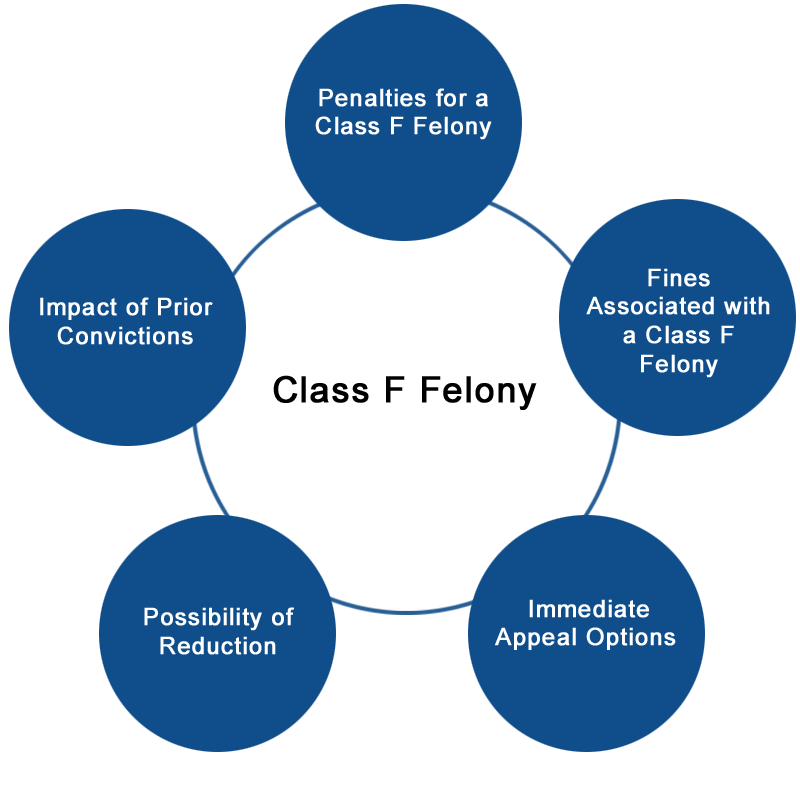Class F Felony in Wisconsin
Facing any criminal charges can be upsetting, but facing a felony is particularly traumatic. You’re probably dealing with a range of emotions and uncertainty about your future. At Tracey Wood & Associates, we calm those fears by educating you with information about what you’re facing so you can feel empowered to fight your charges and have hope for your case.
What Is the Difference Between a Felony and a Misdemeanor?
In Wisconsin, felonies and misdemeanors are defined by the length of the prison sentence suggested in state statute for the crime. Felonies carry punishments of one year or more in federal or state prison. Misdemeanors carry punishments of less than one year in prison. Both can carry fines and potential jail time.
 What Are the Penalties for a Class F Felony?
What Are the Penalties for a Class F Felony?
Wisconsin law defines the penalties for a Class F felony to include prison terms not to exceed 12 years and 6 months.
What Are the Fines for a Class F Felony?
A fine not to exceed $25,000.
What Are Some Effects of Having a Criminal Record?
In addition to prison time and fines, having a criminal record can affect many other aspects of life. Having a conviction means any future charges will include more serious penalties. Child custody rights may be jeopardized. Future employers have the right to run background checks and deny employment. Driving and firearm privileges are also at risk. Some convictions may result in the loss of student financial aid.
How Will a Felony Conviction Affect Someone’s Ability to Vote?
People convicted of felony charges in Wisconsin lose their right to vote for the length of their sentences. They regain that right once their full sentence has been completed as long as they have no other outstanding felony convictions or other reasons why they are prohibited from voting.
How Will a Felony Conviction Affect Someone’s Ability to Own a Firearm?
People convicted of felony charges in Wisconsin permanently lose their ability to carry a firearm.
How Will a Felony Conviction Affect Someone’s Ability to Sit on a Jury?
People convicted of a felony charge lose their right to sit on a jury for the length of their sentences. They can regain that right once their full sentence has been completed.
Will a Class F Felony Conviction Cause Someone to Be Removed or Deported From the U.S.?
People convicted of felony charges may be removed or deported depending on a number of factors: the type of visa they hold, how long they’ve been in the U.S., their status in the U.S., and the type of crime they committed.
Some charges are more likely to result in removal or deportation regardless of other factors, including:
- – Drug crimes
- – Domestic violence
- – Aggravated felonies
- – Restricted controlled substances
- – Crimes of moral turpitude (broadly defined as “crimes that violate moral community standards.”)
Can a Class F Felony Be Expunged?
This depends on many factors and the circumstances of the case.
Can a Class F Felony Be Appealed?
In Wisconsin courts, the right to appeal convictions and/or sentences is automatic. The process for appeals differs based on the reason for the appeal. For cases where there is new evidence or where defendants feel their attorney misrepresented them, appeals are pursued by filing a motion to the trial court after conviction. Habeas actions may also be filed in the Seventh Circuit Court of Appeals.
Motions to reduce a sentence, also called sentence modification motions, must first be brought in the trial court through a post conviction motion. Either party may then appeal to the Court of Appeals and higher from that decision.
For cases where the defendants feel something about the process violated their constitutional rights, appeals are pursued to the Wisconsin Court of Appeals and possibly to the Wisconsin Supreme Court and the Seventh Circuit Court of Appeals. Unfairly severe sentences can also be appealed to the Wisconsin Court of Appeals and higher.
There Is Hope
Facing Class F felony charges brings up all kinds of emotions – fear, worry, anxiety. We’re here to help guide you through those emotions to a place of hope for your future through education, empowerment, and a strong defense.
We strongly believe that charges don’t mean convictions. There’s always a reason to have hope, and it starts with an aggressive defense strategy. At Tracey Wood & Associates, we believe your side of the story matters, and we’re here to help you tell it.
If you’re facing felony charges, now is the time to start fighting back. Call us today to set up a free, no-obligation consultation.
Call (608) 490-5779 or Schedule a Free Case Evaluation Online

